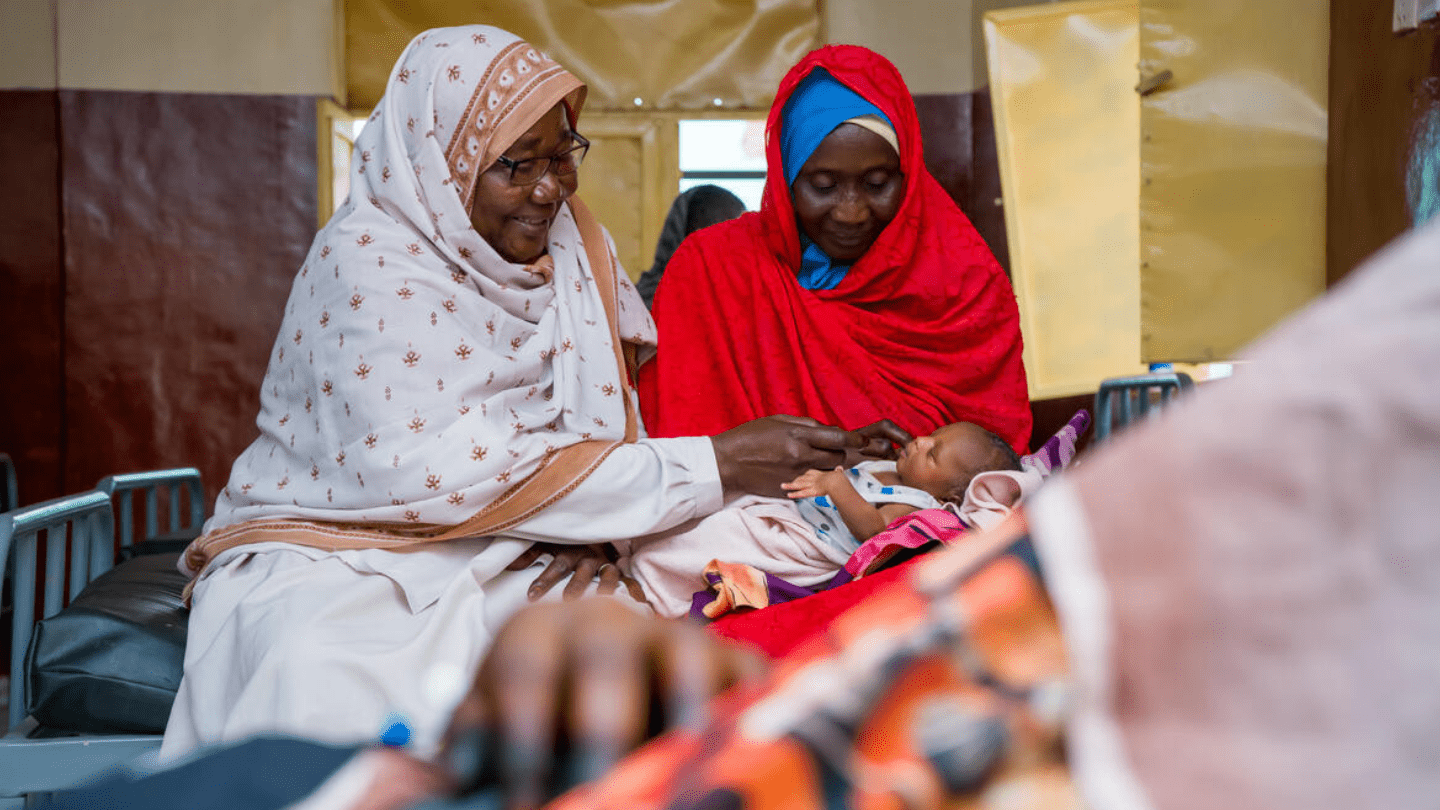The League of Arab States and UNFPA Call for Urgent Investment in Midwives
Cairo, 5 May 2025 – On International Day of the Midwife, the United Nations Population Fund (UNFPA) and the League of Arab States (LAS) highlight the irreplaceable role of midwives in saving lives during conflicts and humanitarian crises across the Arab region.
Midwives are often the first—and sometimes only—responders for women and newborns in emergencies from the catastrophic humanitarian crisis in Gaza and Sudan, to remote areas cut off by natural disasters. They put their own lives in danger to save the lives of thousands of mothers and newborns, providing maternity services in communities and health facilities. They are, however, in short supply. On average, there are around two midwives for every 10,000 people in the Arab States region. Recent funding cuts threaten these numbers even further.
In Yemen, where a woman dies needlessly every two hours during pregnancy and childbirth, funding cuts mean that UNFPA can now only support half of the 1,500 midwives it planned to finance in 2025. In Sudan, the world’s most devastating humanitarian crisis, plans to train 1,300 future midwives have been put on hold. Pregnancy and childbirth will become ever more dangerous for the 2.2 million pregnant women caught up in emergencies in the region who need humanitarian support in 2025.
"Midwives are the backbone of maternal health, especially in crises. Yet, they work in danger, often with limited protection, inadequate pay and without the tools they need to do their job to the best of their ability,” said Ms. Laila Baker, UNFPA Arab States Regional Director. “Investing in midwives isn’t just a health priority—it’s a moral and economic imperative. No mother should be denied life-saving care."
In 2022, UNFPA and LAS launched the Regional Strategic Framework for Nursing and Midwifery (2022) with WHO EMRO in support of efforts to enhance national commitments to nursing and midwifery across the Arab region. This includes working with governments and regional partners to strengthen midwifery education and policies and address critical gaps in skilled care during childbirth to reduce preventable maternal and newborn deaths.
"The League of Arab States, in partnership with UNFPA, is committed to strengthening midwifery across the region,” said H.E. Ambassador Haifa Abu Ghazaleh, Assistant Secretary-General for Social Affairs, League of Arab States. “Our joint regional strategic framework is a critical step, but we must accelerate actions for implementation. Midwives must be protected, empowered, and recognized for their work—because when midwives thrive, societies thrive."
UNFPA and LAS urge governments and donors to sustain and scale up funding for midwifery education, equipment, and salaries, and to accelerate commitments to midwifery to address stagnating maternal and newborn death rates, and prevent progress made from being rolled back. Midwives and health systems that safeguard the lives of pregnant women and newborns must be supported and well resourced.
Midwives don’t just deliver babies—they deliver healthy futures. It’s time to deliver for them.
###
For more information, please contact:
UNFPA Arab States Regional Office
Samir Aldarabi
Regional Communication Adviser Arab States Regional Office
Email: aldarabi@unfpa.org
Mobile: +201068484879
League of Arab States
Maissa Arafat Salim Hidmi
Counsellor
Director of Health & Humanitarian Aid Department, Social Affairs Sector
Email: maissa.hidmi@las.int
Office: +202-25777180 -- Ext: 3710


